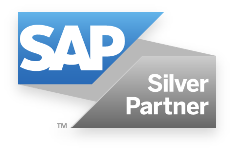7 Biggest Benefits ERP Brings to Your SME Business

As you know, running a business is more than just producing the perfect product, or providing the ultimate service. You – the business owner – are faced with complex challenges on a daily, if not hourly, basis. From payroll, to inventory, to reporting, to making the next sale: decisions need to be made based on information provided to you from every direction you can imagine. How could you do that better? How can you increase your competitiveness?
Best aid for a competitive business
Wouldn’t it be nice to have an aide by your side for 24/7 assistance? Someone or something that can provide all the information you need, in one place, on-demand? Essentially, that is what an Enterprise Resource Planning will give you. It is the resource when you need it, day-in, day-out.
If you are currently using an Enterprise Resource Planning system, or just researching options to help your business, this list will help you prioritise the important factors in choosing a replacement.
Seven important factors
Competitive Pricing
The purpose of business is to make margin. Therefore, if you invest in an Enterprise Resource Planning system, it needs to be competitively priced so it doesn’t become a burden to the organisation (you do need to closely manage your costs to be successful). And to make it more affordable there should be options about buying up front as a capital purchase or paying for Software as a Service on a monthly rental model. You also should have knowledge of the lifetime cost of ownership so you know your ROI (annual contract prices and intermittent software upgrades are the largest components).
-
Credibility
- Regardless of industry sector, ERP software can add significant credibility to your business by seamlessly connecting you to customers or vendors alike. For example, through this connectivity, the software allows for tracability in regards to product shipments to customers. Even the reverse is possible, when a customer wants to return an item, you can track the item and its progress back to the origination point. You gain customer and vendor confidence with these constant information updates. Flexibility extends to hosting options as well. Depending on physical space and budget, you can choose between on-premises hosting or SaaS using cloud computing technology. Lastly, when you purchase you need to be sure that you are making the right decision – and that means selecting a credible solution provider. And that is both the software itself and the VAR that provides it to you.
-
Tangible Benefits
Whilst it’s great that a significant investment like this will provide a positive ROI, it really needs to provide tangible benefits to a company from almost Day 1. You should look at aspects where such a system will deliver really quickly – you can make much better decisions with real-time reporting. This will give trading information (such as gross profit and gross profit percentage on an ongoing basis) in near real-time. This allows the business to trade with greater confidence, knowing that they’re covering costs, making money and hitting target margin. Another fast benefit is the visibility of results throughout the organisation – everyone uses the same centralised database so there is minimal disruption and less contradictory reporting. Different departments work together better when they use only one view.
-
Choices
- What a business needs is a scalable solution which is also sufficiently flexible to adapt to the way the company does business. So often very large systems like this actually act like a straight-jacket, forcing companies to change their business practices to fit with how the software works. However, this isn’t an efficient way to do business. Pick a solution that can adapt to your processes because, frankly, you know that way works. Over time there will be the chance to refactor your processes and make them more efficient. You should be able to utilise what you need, not what comes in a package from the manufacturer.
-
Innovation without disruption
As a business, you do need to have continuity of production and productivity while a new solution is implemented. That means minimal downtime to your business. You have to have a tightly managed implementation project plan delivered by experienced consultants. Check to see how long your supplier has been in business. These projects are complicated and need to be closely managed by experienced experts. They will be able to make sure you get the ROI.
-
Ongoing support
- It is highly unlikely that such a central system to a business would be installed without some kind of support contract being in place. It would just be too risky. What is important to understand is what ongoing support is available from your supplier and for the systems that you are considering. You need to understand the levels of expertise available, the contractual commitments and the ability to support online and, where absolutely necessary, in what circumstances someone will come on-site to maintain your system. Importantly, your supplier should know your industry sector and what the key issues are.
-
Systems that adapt
- Business is changing especially fast just now. We’re just emerging into a period of growth but nobody knows what might happen in five or ten years time. So, it’s best to have an adaptable system which can flex to the changing shape of your business. Who would have predicted the incredible growth in mobile? Having a system which deliver on a desk-top, online via a web-interface or on a tablet when you are at home or even at a client’s location is increasingly important.
Whilst these are the seven most important points to consider, there are some other technological factors you should also keep in mind to make sure you don’t go down a technological cul-de-sac.
You should be looking for the following technology trends to be included in any solution to be future-proofed:
- Hand held / mobile for remote workers / off-site access
- Cloud and SaaS delivery
- Integration with E-commerce
- Ability to link with other specialist systems typically via APIs (for example Lean Manufacturing Tools)

